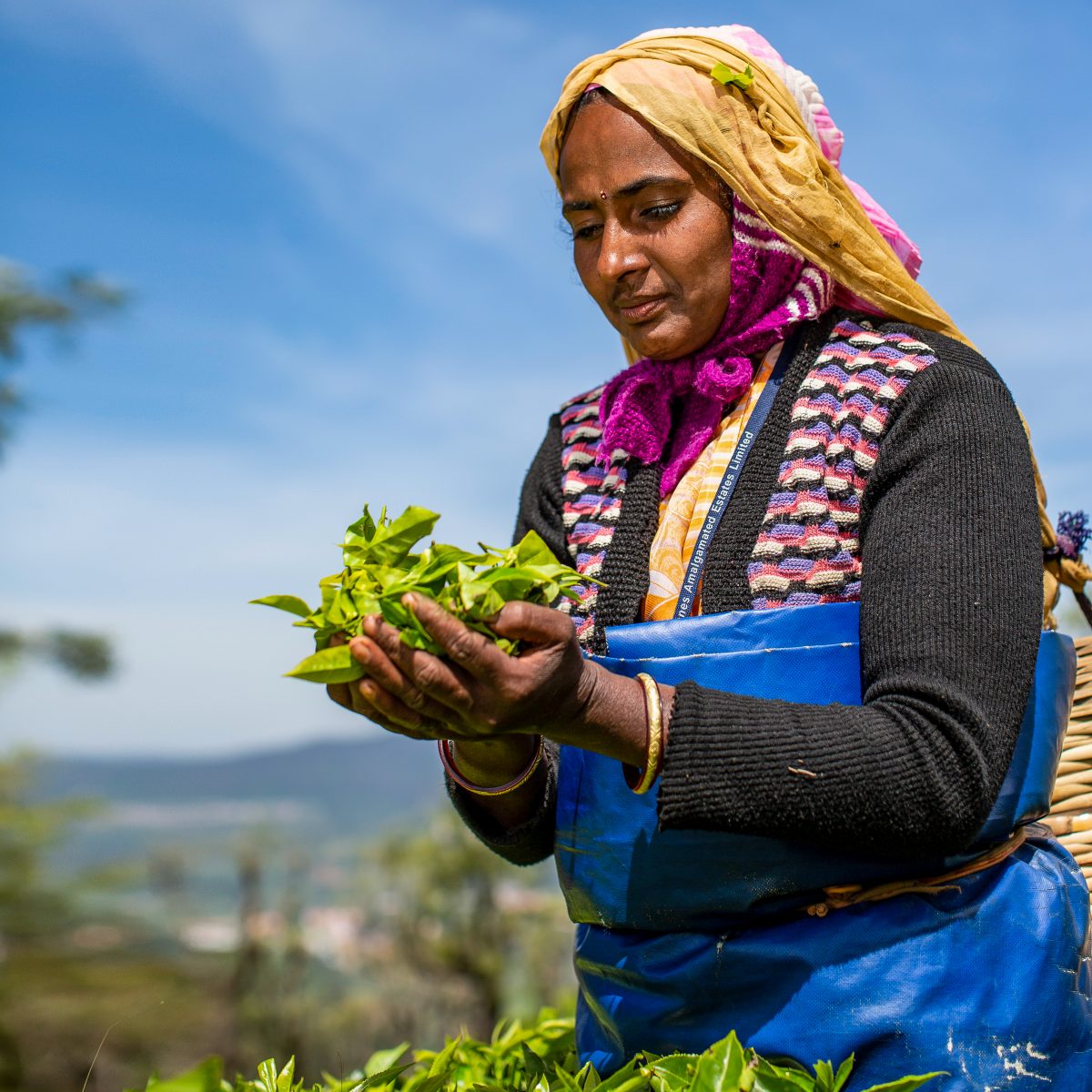Changes for women on tea estates

The role of women in tea production, primarily as pluckers, is crucial. Women make up a core part of the labour force at Welbeck, Dunsandle and United Nilgiri. Empowerment is at the heart of Fairtrade, regardless of gender. But gender inequality remains an issue across the globe, with a number of barriers facing women.
At Dunsandle, Welbeck and United Nilgiri, there are some examples of small changes driven by Fairtrade.
Unpaid care work
The burden of household duties and childcare is a key challenge facing many women. This limits the time and energy they have for other activities that could bring greater change to their lives.
At Dunsandle, Welbeck and United Nilgiri, some Fairtrade Premium projects are supporting women to create more free time by reducing their household duties. This includes more efficient cooking facilities, and in particular, fridges that save women time as they are able to keep food fresher for longer and, therefore, make fewer trips into Ooty to the market. One project saw the purchase of blenders for women workers, and others have received efficient gas stoves and pressure cookers.
the projects allow the women to prepare food more easily, which means that they can go to and from work and not have too much to do at home to prepare food.


Sexual harassment and women’s protection
The Fairtrade Standards require all estates to have a policy outlining the process in the case of sexual harassment. Grievances must be handled by a specially appointed women’s group or women’s committee. The Standards also strive for estates to go beyond core requirements. That could mean an estate’s women’s committee being linked to a female senior manager.
Beyond Fairtrade: changing roles of women
Labour on tea estates in India has historically been divided along gender lines: women working in the field as pluckers and men in the factory or in maintenance work. While this is still broadly the same, change is happening. For example, women are being promoted as supervisors in the field. This has reportedly improved working relationships as women workers often feel more at ease talking with a female supervisor if there are any problems. There are also instances of women taking on roles typically held by men. For example, at Welbeck, Janet has become one of the first women factory officers in South India. While this is a result of the support of management, it shows how strong business values can create broader changes.
